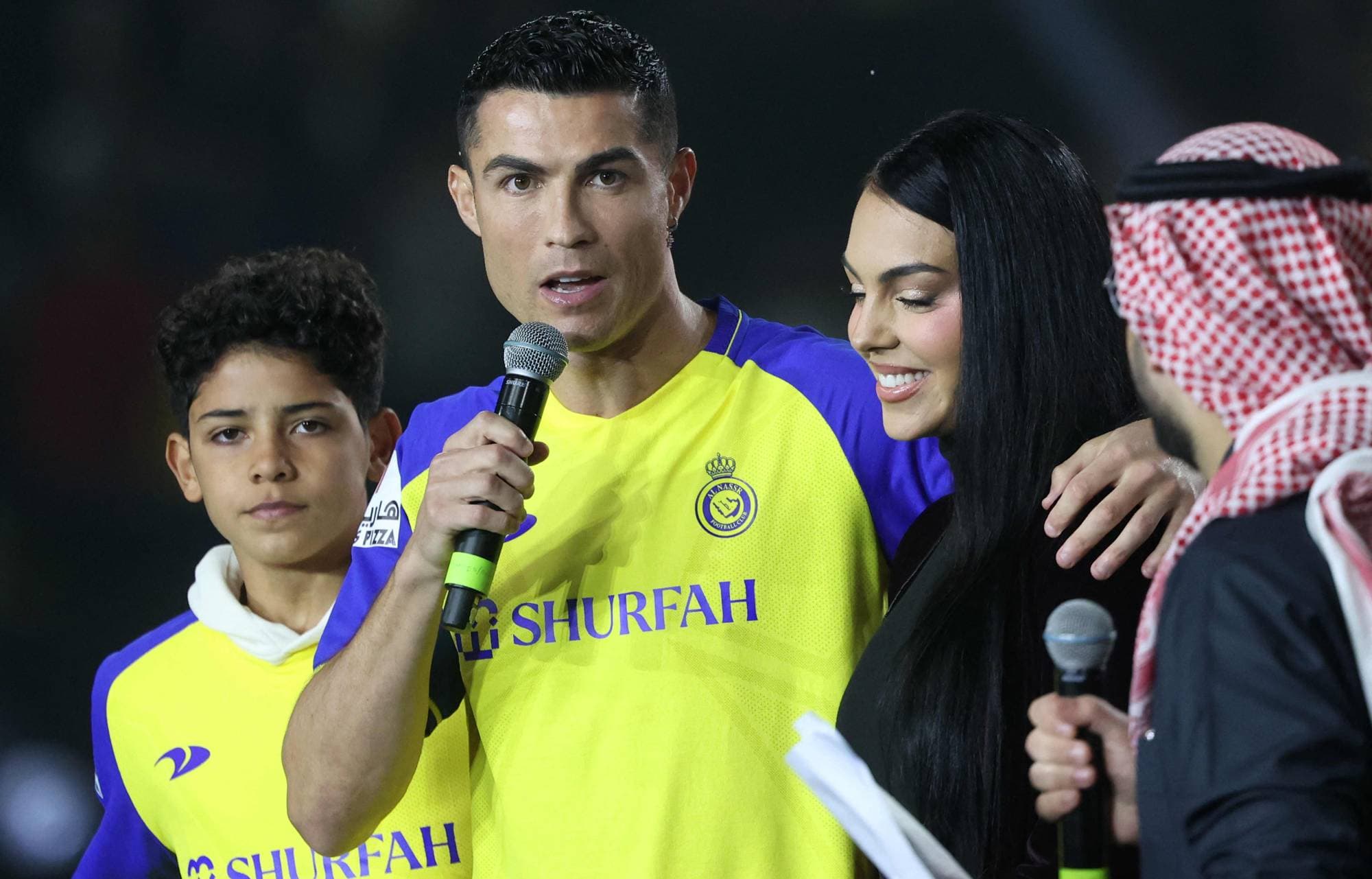Massive Contract, Massive Questions: Ronaldo & Al Nassr
Cristiano Ronaldo has once again made global headlines after signing a reported £492 million two-year contract extension with Saudi Arabian club Al Nassr. The deal, which is said to be the largest in football history, has sparked intense debate about the future of football economics, the influence of oil-backed leagues, and the sustainability of such financial extravagance in the modern game.
Ronaldo’s initial move to Al Nassr in late 2022 marked a turning point for Saudi football. It was the first time a five-time Ballon d’Or winner, still active at a high level, joined the Saudi Pro League. This new deal, however, takes things to an entirely new level. Beyond his on-pitch contributions, the contract reportedly includes image rights, commercial deals, and ambassadorial roles tied to Saudi Arabia’s Vision 2030 project, a national initiative aimed at diversifying the economy and using sport as a tool for global influence.
%3Aquality(75)%2Fmedia%2Fpictures%2F2025%2F02%2F03%2F3252561.jpg&w=3840&q=75)
While fans are amazed by the scale of the deal, financial experts are questioning its logic. Ronaldo’s reported earnings exceed the total annual revenue of Al Nassr as a club. Analysts suggest that this is less about football profit and more about national branding. Like Qatar’s use of Paris Saint-Germain or the UAE’s ownership of Manchester City, Saudi Arabia is leveraging football as a soft-power instrument. Through high-profile signings, the kingdom is positioning itself as a global sports hub, using Ronaldo as both a sporting ambassador and a marketing asset.
However, this economic model comes with risks. The rising wave of ultra-lucrative contracts in Saudi football has led to fears of “football inflation,” where wages and transfer fees spiral beyond sustainable limits. Such spending could distort global transfer markets, widen the gap between rich and modest clubs, and shift the sport’s focus from performance to profit.

For Ronaldo, this deal is the culmination of both legacy and leverage. At 40, he continues to defy the natural decline of most footballers. His form in Saudi Arabia remains impressive, with over 35 goals in the 2024–25 season alone. His discipline, fitness, and global appeal have made him more than just a player—he is a commercial empire in motion. Yet, critics argue that his continued stay in the Middle East has blurred the line between sporting ambition and financial opportunism. Instead of seeking new challenges in Europe or America, Ronaldo has become the symbol of football’s new economic reality—one driven by wealth, not competition.

This fits neatly into Saudi Arabia’s grand football vision. The Saudi Public Investment Fund (PIF) owns stakes in four major clubs: Al Nassr, Al Hilal, Al Ahli, and Al Ittihad, and has spent billions to attract world-class players. The goal is clear: to transform the Saudi Pro League into one of the top global football destinations. The influx of stars such as Neymar, Benzema, and Kante has undoubtedly increased viewership and sponsorship interest. But the challenge remains whether the league can build long-term sustainability beyond the glamour of foreign superstars.
The ethical dimension of this project also continues to provoke discussion. Human rights groups accuse Saudi Arabia of sportswashing—using sport to improve its global image and divert attention from internal political issues. Defenders argue that football can be a vehicle for cultural exchange and progress. But the question remains: at what cost?
As one European commentator observed, Saudi football is not just buying players; it is buying stories. And Ronaldo’s story remains the most marketable in the modern game.
.jpg&w=3840&q=75)
Looking ahead, Ronaldo’s deal will likely redefine standards across global football. For players, it raises expectations of what top-tier athletes can earn. For clubs, it intensifies the arms race between privately funded teams and state-backed giants. For football itself, it forces a deeper reckoning about whether the sport’s future lies in fair competition or financial dominance.
Ronaldo’s time at Al Nassr is more than the twilight of a legendary career—it is a living experiment in how money, power, and prestige can reshape a game loved by billions. His contract is not just a record-breaking figure; it is a statement about where football is heading in the 21st century.

In the end, Ronaldo’s deal is not just about goals and trophies. It’s about influence, ambition, and the shifting balance of global power in sport. The numbers may fade with time, but the questions it raises will linger far longer.
